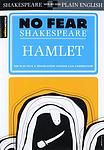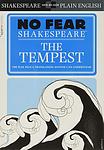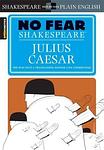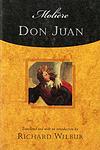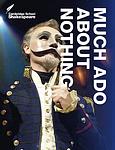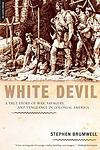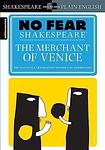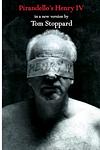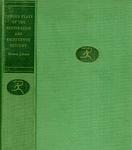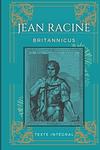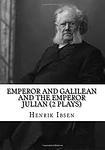The Greatest "Plays, Italy" Books of All Time
Click to learn how this list is calculated.
This list represents a comprehensive and trusted collection of the greatest books. Developed through a specialized algorithm, it brings together 300 'best of' book lists to form a definitive guide to the world's most acclaimed books. For those interested in how these books are chosen, additional details can be found on the rankings page.
Genres
Plays are a category of literature that consists of written works intended for performance on stage. They typically feature dialogue between characters and are structured into acts and scenes. Plays can be comedic, tragic, or a combination of both, and often explore themes such as love, power, and morality. They are meant to be performed by actors in front of an audience, and can be enjoyed both as written works and as live performances.
The "Italy" category of books encompasses literature that is set in Italy, written by Italian authors, or explores the culture, history, and lifestyle of Italy. This category includes a wide range of genres, including fiction, non-fiction, memoirs, travelogues, and cookbooks. Books in this category often showcase the beauty and charm of Italy, its rich history and traditions, and the unique experiences of its people. Whether you're looking for a romantic novel set in Tuscany or a guidebook to the best gelato shops in Rome, the "Italy" category has something for everyone.
Countries
Date Range
Reading Statistics
Click the button below to see how many of these books you've read!
Download
If you're interested in downloading this list as a CSV file for use in a spreadsheet application, you can easily do so by clicking the button below. Please note that to ensure a manageable file size and faster download, the CSV will include details for only the first 500 books.
Download-
1. First Folio by William Shakespeare
This collection is a compilation of 36 plays by a renowned English playwright, published seven years after his death. It includes comedies, histories, and tragedies, some of which had never been published before. Notable works in the compilation include "Macbeth," "Julius Caesar," "Twelfth Night," "The Tempest," and "As You Like It." The collection is considered one of the most influential books ever published in the English language, as it preserved many of the playwright's works that might have otherwise been lost.
-
2. The Tempest by William Shakespeare
"The Tempest" is a classic play about a sorcerer and rightful Duke of Milan who has been stranded on an island for 12 years with his daughter after being betrayed by his brother. Using his magical powers and the help of an airy spirit, he conjures a storm to shipwreck his brother and other enemies on the island. The narrative explores themes of revenge, power, magic, and forgiveness as the sorcerer manipulates events on the island to regain his dukedom and secure a good future for his daughter.
-
3. Romeo and Juliet by William Shakespeare
This classic play tells the tragic love story of two young individuals from feuding families in Verona, Italy. Despite their families' ongoing conflict, the pair secretly marry and vow to be together, no matter the cost. Their commitment leads to a series of unfortunate events, including misunderstandings, banishments, and ultimately, their untimely deaths. Their demise, however, reconciles their feuding families, leaving a poignant message about the destructive power of hate and the redemptive power of love.
-
4. Othello by William Shakespeare
"Othello" is a tragic play about a Moorish general in the Venetian army who is manipulated by his ensign into believing that his wife is unfaithful. Consumed by jealousy, the general kills his wife, only to discover that she was innocent. Filled with remorse, he then takes his own life. The play explores themes of love, jealousy, betrayal, and racism.
-
5. Julius Caesar by William Shakespeare
This classic play dramatizes the political and personal machinations surrounding the assassination of a powerful leader. The narrative follows the conspirators' plot, their execution of the plan, and the resulting chaos and war. The themes of ambition, loyalty, and the struggle for power are explored through complex character interactions and memorable soliloquies. The play also examines the consequences of political violence and the unpredictable nature of history.
-
6. Galileo by Bertolt Brecht
This play delves into the life of the renowned Italian scientist, Galileo Galilei, who challenged the church's belief in a geocentric universe. It explores his struggles against the Catholic Church, his recantation, and the consequences of his actions on his life and those around him. The narrative also examines the conflict between science and religion, the ethics of scientific discovery, and the price of truth.
-
7. Don Juan by Molière
This comedic play explores the life of a libertine nobleman who is infamous for his seduction of women. The protagonist is a man who lives by his own rules, unburdened by morality or religion, and who takes pleasure in manipulating others for his own gain. His actions eventually lead to his downfall when he refuses to repent for his sins, resulting in a dramatic, supernatural punishment.
-
8. Much Ado about Nothing by William Shakespeare
This classic play revolves around two pairs of lovers in the city of Messina. The first pair, Hero and Claudio, are young and innocent, while the second pair, Beatrice and Benedick, are older and more cynical about love. Throughout the plot, the couples face various challenges including deception, public humiliation, and the faked death of Hero. However, with the help of their friends and family, they overcome these obstacles and the story concludes with a joyful double wedding.
-
9. The White Devil by John Webster
"The White Devil" is a gripping and darkly captivating play that delves into the themes of revenge, corruption, and deceit. Set in 16th century Italy, the story follows the lives of two powerful families, the Brachiano and the Medici, as they engage in a web of treachery and manipulation. As tensions rise and secrets unravel, the characters are consumed by their own desires, leading to a tragic and bloody climax. With its complex characters and intricate plot, "The White Devil" explores the depths of human nature and the destructive consequences of unchecked ambition.
-
10. The Merchant of Venice by William Shakespeare
This classic play follows the story of a merchant in Venice who is in dire financial straits and borrows money from a Jewish moneylender, promising a pound of his own flesh as collateral. When he is unable to repay the debt, the moneylender demands his due, leading to a court case and moral dilemma about mercy and justice. Meanwhile, the moneylender's daughter elopes with a Christian, further complicating the relationships between characters. The narrative explores themes of prejudice, love, and the law.
-
11. The Winter's Tale by William Shakespeare
"The Winter's Tale" is a tragicomedy that tells the story of Leontes, a king who unjustly accuses his wife Hermione of infidelity with his best friend. Consumed by his jealousy, he orders her imprisonment, causing their son's death and supposedly leading to Hermione's death as well. After 16 years, Leontes is reunited with his daughter, believed to have died at birth but actually raised by a shepherd. The story concludes with a statue of Hermione coming to life, revealing that she had been alive all along, living in hiding. The play explores themes of jealousy, loss, redemption, and the healing power of time.
-
12. The Taming of the Shrew by William Shakespeare
This classic play is a comedic tale of love, deception, and transformation. It focuses on the courtship of Petruchio, a gentleman of Verona, and Katherina, the headstrong, obdurate shrew. Initially, Katherina is an unwilling participant in the relationship, but Petruchio breaks down her resistance with various psychological torments. The play ends with the tamed Katherina the most obedient wife among three couples, raising questions about the roles of men and women.
-
13. Lorenzaccio by Alfred de Musset
The play is a dramatic tale set in Renaissance Florence, revolving around the character of Lorenzo de Medici, a young, disillusioned aristocrat entangled in the corrupt political machinations of his time. Disgusted by the tyrannical rule of his cousin, Duke Alessandro, and the moral decay of society, Lorenzo hatches a complex plot to assassinate the Duke. His internal conflict and the influence of Machiavellian philosophy drive the narrative, exploring themes of power, betrayal, and the struggle between personal ideals and the harsh realities of the political world. The play ultimately unfolds as a dark, psychological drama that delves into the depths of human nature and the costs of radical action.
-
14. Volpone by Ben Jonson
"Volpone" is a satirical comedy set in 17th century Venice, where the cunning protagonist, Volpone, and his servant, Mosca, swindle the city's wealthy elite by pretending Volpone is on his deathbed and in need of a worthy heir. This prompts a series of greedy contenders who offer extravagant gifts in hope of being named the heir. Despite their successful deceit, their scheme is eventually exposed, leading to their downfall. The story serves as a critique of greed and corruption, highlighting the destructive power of unchecked ambition.
-
15. Henry Iv by Luigi Pirandello
In this novel, the protagonist is a man who, after an accident during a historical pageant, comes to believe himself to be the medieval German emperor Henry IV. For twenty years, he lives in a villa with attendants who indulge his delusion. The story delves into themes of madness, reality, and illusion as characters from his past attempt to cure him, leading to a complex examination of the nature of sanity and the role that personal mythologies play in our lives. As the line between the protagonist's delusion and the reality of those around him blurs, the narrative raises profound questions about the nature of identity and the masks people wear in society.
-
16. Accidental Death Of An Anarchist by Dario Fo
In this satirical farce, an eccentric and quick-witted man, referred to as the Maniac, infiltrates a police station where an anarchist railway worker's death is being investigated. The authorities claim the anarchist died by suicide, having jumped out of a window during an interrogation. However, the Maniac cleverly impersonates various officials, manipulates the policemen, and exposes the absurdities and contradictions in their stories, suggesting that the anarchist's death was not an accident but a cover-up of police brutality. The play uses sharp humor and slapstick to critique corruption and the misuse of power within the establishment, ultimately questioning the integrity of the police and the justice system.
-
17. Venice Preserv'd by Thomas Otway
"Venice Preserv'd" is a tragic play set in the politically tumultuous city of Venice, where conspiracy and betrayal intertwine with personal drama. The plot centers around Jaffeir, a noble Venetian who joins a group of conspirators aiming to overthrow the corrupt government after feeling betrayed by the state. His loyalty is tested when he must choose between his allegiance to the conspiracy and his love for Belvidera, the daughter of a senator. As the story unfolds, the characters are caught in a web of intrigue, leading to a climax that exposes the complexities of honor, friendship, and the devastating consequences of political and personal treachery.
-
18. The Servant Of Two Masters by Carlo Goldoni
The play is a classic Italian comedy that revolves around the clever and resourceful Truffaldino, who seeks to serve two different masters simultaneously in the hope of doubling his income. The ensuing plot is a whirlwind of mistaken identities, love triangles, and comedic confusions. As Truffaldino scrambles to keep his dual employment a secret, the characters are entangled in a series of humorous situations involving love-struck young lovers, a feisty soubrette, and a pair of stern fathers. The play culminates in a series of revelations and reconciliations that restore social order and conclude with festive celebrations.
-
19. The Duchess Of Malfi by John Webster
The play is a dark Renaissance tragedy that tells the story of a young widow, the Duchess, who defies her two corrupt brothers by secretly marrying her steward, Antonio, with whom she has three children. Her brothers, one a twisted cardinal and the other a mentally unstable duke, are driven by greed and power. They employ a spy, Bosola, to uncover her secret, leading to a series of tragic events. The brothers' quest for control results in a bloody and vengeful cycle of murder, madness, and betrayal, ultimately leading to the downfall of almost every main character in a grim commentary on the corrupting nature of power and the vulnerability of women in a male-dominated society.
-
20. Mark Antony by Robert Garnier
The book in question is a classic French Renaissance tragedy that delves into the complex and tumultuous life of a renowned Roman general and politician. Set against the backdrop of the Roman Empire's decline, the narrative explores themes of love, power, betrayal, and the tragic consequences of human flaws. The protagonist's story is one of a passionate and ill-fated love affair with a foreign queen, political strife, and the ultimate downfall of a once-great leader. Through poetic language and dramatic scenes, the play examines the intricate interplay between personal desires and the harsh realities of political life, leading to a catastrophic end that reflects on the nature of fate and the inescapable flaws of humanity.
-
21. Cinna by Pierre Corneille
"Cinna" is a classic French tragedy set in ancient Rome, focusing on themes of clemency and tyranny. The play revolves around the titular character, a nobleman involved in a conspiracy to assassinate Emperor Augustus. As the plot unfolds, the conspirators grapple with their moral dilemmas and the consequences of their actions. The emperor, upon discovering the plot, faces his own internal struggle between his desire for justice and the virtue of forgiveness. The narrative explores the complexities of power, loyalty, and the human capacity for mercy, culminating in a surprising act of leniency that challenges the traditional expectations of retribution in tragedy.
-
22. Britannicus by Jean Racine
The play is a tragic depiction of the struggle for power in ancient Rome, focusing on the young emperor Nero's rise to tyranny. It portrays Nero's manipulation and betrayal as he seeks to consolidate his rule, eliminating any threats to his authority. The drama unfolds around his toxic relationship with his mother Agrippina, his ruthless disposal of his stepbrother Britannicus, who is the rightful heir to the throne, and his obsessive love for Britannicus's betrothed, Junia. The narrative is a classic example of political intrigue, moral decay, and the destructive nature of absolute power, highlighting the psychological complexity and emotional turmoil of its characters as they navigate a dangerous and duplicitous court.
-
23. Emperor And Galilean by Henrik Ibsen
"Emperor and Galilean" is a historical drama that centers on the life of the Roman Emperor Julian the Apostate, who reigned in the 4th century. The play explores Julian's internal conflict as he attempts to revive pagan worship in the face of the growing influence of Christianity. As Julian becomes increasingly disillusioned with Christian doctrine, he seeks to establish a new world order based on a synthesis of Greek philosophy and pagan gods. His quest for spiritual and political transformation leads him on a tragic journey, culminating in his ultimate failure and realization of the futility of his ambitions. The narrative delves into themes of power, faith, and the human struggle between the divine and earthly realms.
-
24. Naked Masks by Luigi Pirandello
"Naked Masks" is a collection of five plays that delve into the complexities of human identity and the conflict between one's inner self and the roles imposed by society. The plays explore themes of madness, illusion, and existential uncertainty, often through characters who are caught in the tension between appearance and reality. The author uses the metaphor of the mask to represent the personas that individuals adopt in public, while questioning the nature of truth and the possibility of truly understanding oneself or others. The plays challenge audiences to consider the fluidity of identity and the performative aspects of everyday life.
-
25. The Mandrake by Niccolo Machiavelli
"The Mandrake" is a satirical play that explores themes of corruption, deceit, and the manipulation of social norms. Set in Renaissance Italy, the story revolves around a young man who, desperate to win the affections of a beautiful but married woman, concocts a complex scheme involving a love potion derived from the mandrake root. With the help of a cunning rascal and a corrupt priest, the plan unfolds with a series of deceptions and moral compromises, ultimately questioning the true nature of virtue and vice in a society rife with hypocrisy. The play delves into the darker aspects of human behavior, using wit and humor to expose the lengths to which individuals will go to satisfy their desires.
Reading Statistics
Click the button below to see how many of these books you've read!
Download
If you're interested in downloading this list as a CSV file for use in a spreadsheet application, you can easily do so by clicking the button below. Please note that to ensure a manageable file size and faster download, the CSV will include details for only the first 500 books.
Download